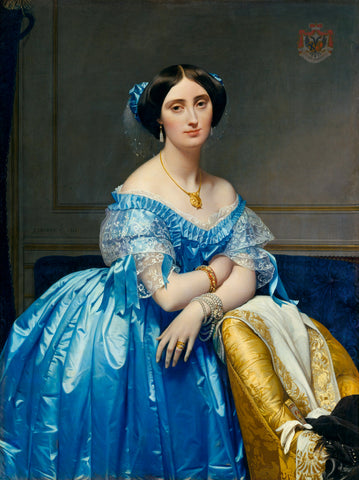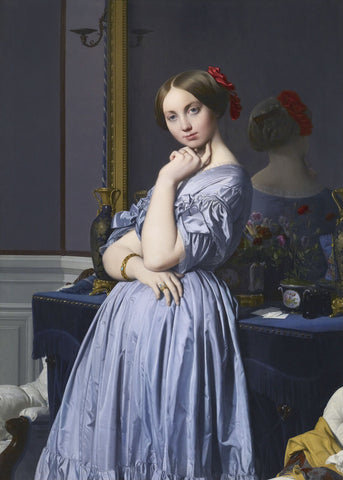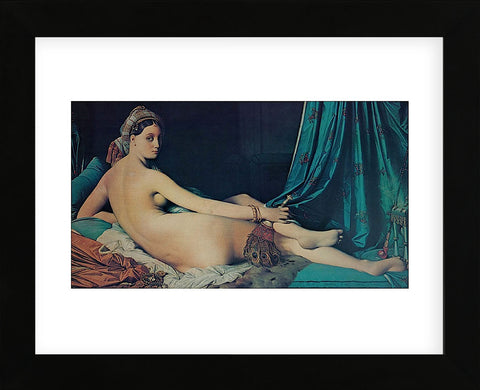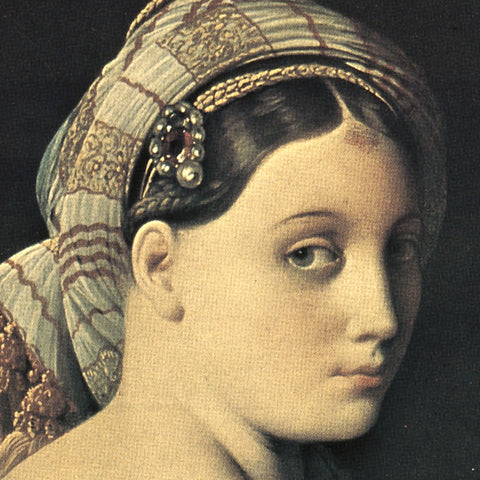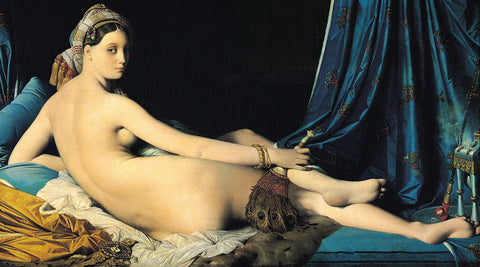Jean Auguste Dominique Ingres
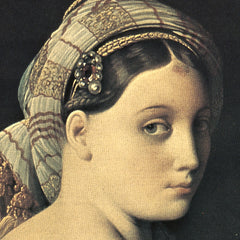
Jean Auguste Ingres was a French painter.
He studied with Jacques-Louis David in Paris before attending the École des Beaux-Arts (1799 – 1801), where he won a Prix de Rome scholarship. Critics condemned one of his first public works, the awe-inspiring portrait Napoleon on His Imperial Throne (1806), as stiff and archaic, but its style was one he developed intentionally. In Italy (1806 – 24) he prospered with portraits and history paintings. His small-scale portrait drawings are meticulously rendered. Back in Paris he received critical acclaim at last and won admission to the academy with The Vow of Louis XIII (1824). He succeeded David as the leader of French Neoclassical painting, a style that was the antithesis of the lush Romanticism of contemporary artists such as Eugène Delacroix, Ingres's chief rival. In 1825 he opened a teaching studio, which became one of the largest in Paris. By the mid 1840s he was France's most sought-after society portraitist. Some of his most notable later works are female nudes, which are often notable for their elongated distortion. None of his many students attained distinction, but his influence is seen in the work of Edgar Degas, Pierre-Auguste Renoir, and Pablo Picasso.



